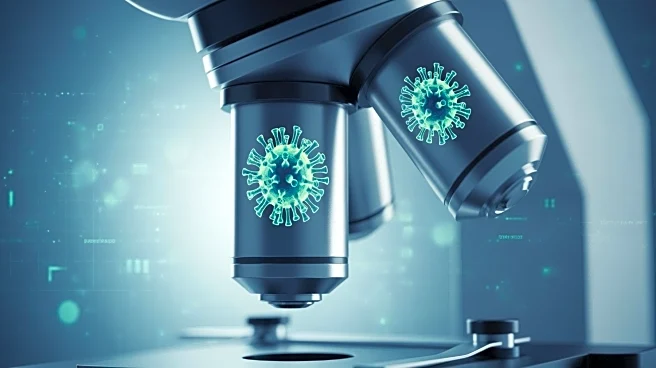What is the story about?
What's Happening?
A study has found that circulating extracellular vesicles (EVs) can predict outcomes in patients undergoing transjugular intrahepatic portosystemic shunt (TIPS) placement for portal hypertension. The research highlights the potential of EVs as biomarkers for assessing hepatic and systemic inflammation in cirrhotic patients.
Why It's Important?
The ability to predict patient outcomes using EVs could improve the management of portal hypertension and related complications. This biomarker approach may lead to more personalized treatment strategies and better prognostic assessments in cirrhotic patients.
What's Next?
Further validation of EVs as prognostic biomarkers is needed to establish their clinical utility. The study suggests that EVs could be integrated into routine assessments for patients undergoing TIPS, potentially enhancing treatment outcomes.
Beyond the Headlines
The use of EVs as biomarkers represents a shift towards more precise and individualized medicine, which could transform the management of liver diseases. This approach may also lead to new insights into the mechanisms of portal hypertension and cirrhosis.
















